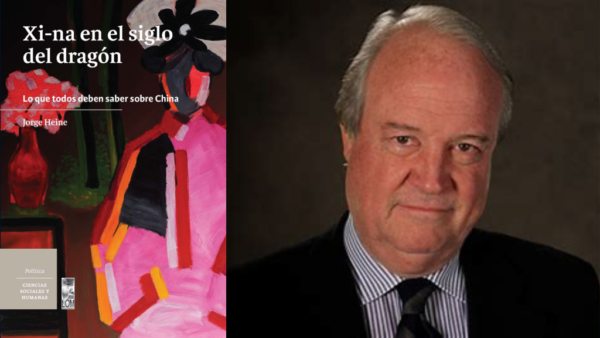Mikhail Gorbachev, who served because the Soviet Union’s remaining chief and is credited with transitioning the previous nation, and Jap Europe, to post-communist governance, died Tuesday. Overseas coverage leaders and Stanford associates praised his vital function in diffusing the Chilly Conflict and somberly noticed his passing.
“I’m saddened to listen to of the passing of Mikhail Gorbachev,” wrote Hoover Establishment Director and former Secretary of State Condoleezza Rice in an announcement to The Day by day. “He was a person who tried to ship a greater life for his individuals. His life was consequential as a result of, with out him and his braveness, it might not have been doable to finish the Chilly Conflict peacefully.”
Born in poverty, Gorbachev labored his method up the Soviet political ranks by means of the mid-Twentieth century. Gorbachev joined the Communist Get together’s Central Committee as its youngest member in 1971, and he ascended to the committee’s management ranks in 1980. The deaths of three celebration executives in underneath three years led Soviet management to elect a youthful Common Secretary, Gorbachev, just a few years later.
“As Gorbachev’s presidency unfolded, it turned clear that he was not going to be just like the dour and geriatric Leonid Brezhnev, Yury Andropov and Konstantin Chernenko,” wrote Rose Gottemoeller, a Hoover Establishment analysis fellow and former NATO Deputy Secretary Common. “Solely 54 when he took workplace, Gorbachev was simply essentially the most dynamic determine seen in Moscow for practically thirty years, with the boldness to talk overtly on the general public stage with overseas leaders comparable to Ronald Reagan and Margaret Thatcher.”
Although Gorbachev revered communist ideas, he from the outset of his management sought to reform stagnant forms and permit mental and private freedoms. Gorbachev additionally noticed the protection finances, which was 25 % of the Soviet Union’s GDP, as a serious impediment in his pursuit of an economic system aggressive with the U.S. He addressed this with a collection of compromises and treaties with western nations.
Norman Naimark, a senior fellow at Freeman Spogli Institute for Worldwide Research (FSI) and on the Hoover Establishment, wrote that Gorbachev’s achievements have been “appreciable and inconceivable on the time” in an announcement to the Day by day. He wrote that Gorbachev’s arms management treaties constructed “a diplomacy of belief” and his authorities reforms drastically superior dwelling situations.
“Gorbachev helped convey an finish to the stultifying political construction of the Soviet Union that had held the peoples of that multinational nation in bondage to a centralized and corrupt communist elite,” Naimark wrote.
Heart on Democracy, Growth and the Rule of Legislation Director and Hoover Establishment Senior Fellow Kathryn Stoner labeled Gorbachev as “the best statesman of the Twentieth century” in a written assertion to the Day by day.
Stoner wrote that Gorbachev was “chargeable for the top of the Chilly Conflict in some ways” and characterised the nuclear-weapon bans and arms reductions he signed with the U.S. as “foundational for the safety of the planet.”
For Gottemoeller, “it actually got here house that Gorbachev was altering the us” throughout a 1989 go to with Mike Hurley, a pal in Moscow’s U.S. embassy. In accordance with Gottemoeller, Hurley revealed he managed to get a bit on arms management authored by Max Kampelman, the lead nuclear negotiator for the U.S., printed within the premier Soviet newspaper Izvestiya.
“Mike’s task throughout that stint in Moscow was to attempt to get a deal with on whether or not ‘glasnost’’ — the opening of society — was actual,” Gottemoeller wrote. “It was actual.”
Stoner praised Gorbachev’s restraint of a army response to the autumn of the Berlin Wall in the identical 12 months. One 12 months later, the Soviet president introduced his name for cooperation to the Stanford campus, chatting with a crowd of 1,700 concerning the significance of management and unity within the post-Chilly Conflict period. Gorbachev led by instance — Naimark wrote that within the late 80’s and early 90’s, Gorbachev “freed Jap Europe — the Poles, the Czechs, the East Germans, the Hungarians, and others — to develop politically as they wished.”
Nonetheless, each Stoner and Naimark wrote that Gorbachev’s liberalization efforts have been much less profitable in his personal nation than in surrounding nations. Stoner stated Gorbachev was a “tragic determine” whose “indecisive financial reforms” contributed to a “dying spiral” for the Soviet Union.
Naimark wrote that Gorbachev confronted a “useless finish” from the “one-way road of an economically inefficient and politically tyrannical system,” and that although Gorbachev saved the peace, within the early 90’s “his countrymen rejected him as both too conservative or too radical.”
Gottemoeller wrote that her most hanging reminiscence of Gorbachev, who she met within the mid-2000’s at his birthday lunch, was his prediction that Soviet safety forces such because the KGB grew extra highly effective and harmful after the Soviet Union’s collapse.
“Through the Soviet period, not less than the Communist Get together Central Committee saved them underneath management,” Gorbachev stated, in keeping with Gottemoeller. “Now, they’ve nobody to reply to however themselves. They’re extra of a risk now.
In accordance with Stoner, a lot of Gorbachev’s cultural liberalization of Russia has been undone by Vladimir Putin.
“Gorbachev’s Soviet Union was freer in 1990 than Russia is now in August 2022 sadly,” Stoner wrote. “I’m positive Gorbachev was dissatisfied when he died by what Russia has develop into underneath Putin right now.”
